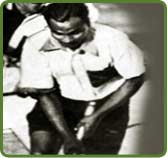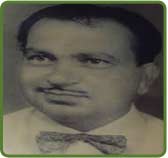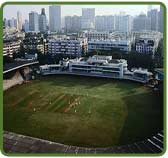Introduction

Kunwar Digvijay Singh (February 2, 1922 in Barabanki March 27, 1978 in Lucknow), popularly known as"Babu", was an Indian field hockey player. He was born in Barabanki, Uttar Pradesh.He received his early education at the Government High School, Barabanki and Kanyakubj Inter College, Lucknow.
As a player: He was first selected to the All India Hockey Team in 1946-47 for the tour to Afghanistan. He played in the capacity of vice-captain in the 1948 Olympic Games. He was the captain of the Indian team at 1952 Helsinki Olympics Games. The Indian team won a gold medal on both occasions. The 1948 outing was the first Olympic participation of Indiaas an independent nation, which made the gold medal victory a very important achievement for the nascent nation even though it had won the Olympic gold in 1928, 1932 and 1936.He was made captain of the Indian team in 1949, this year out of 236 goals scored, he had netted 99 goals, maximum by any member of the team.
Career


K. D. Singh Babu Stadium, Lucknow
• K.D. Singh Babu received the Helms Trophy in 1953 for being the best hockey player in the world (1952) and the best sportsman of Asia (1953). This was the first time an Indian was awarded the Helms Trophy.• In 1958 he was awarded the prestigious Padmashri award by the Government of India.
• The stadiums in Barabanki and Lucknow are named after him. The stadiums atLucknow and Barabanki both are known as the "K. D. Singh Babu Stadium".
• A street in Barabanki city connecting Chhaya Chauraha and Lucknow-Faizabad Road is named after him.
Death
On March 27, 1978, he died of a gunshot wound from his own weapon. He had committed suicide owing to being plagued by personal problems.| Gold | 1948 London |
| Gold | 1952 Helsinki |


